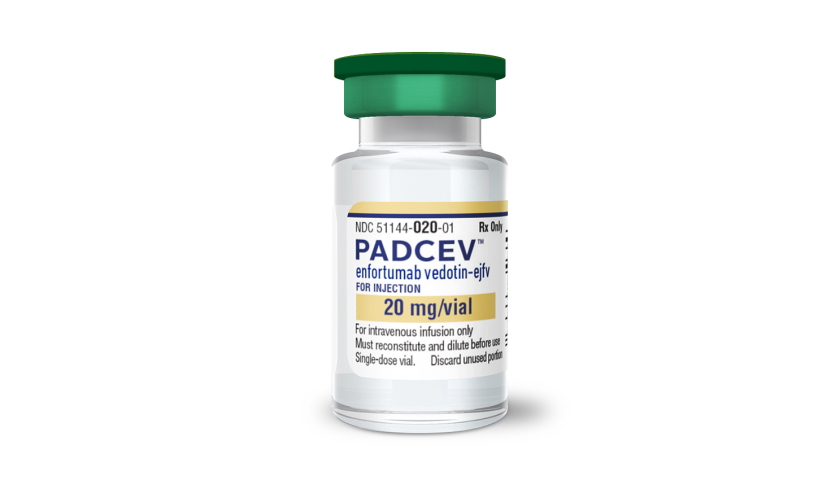Astellas, Seagen seek speedy reviews of Padcev in bladder cancer

The next milestone in Seagen and Astellas' bid to build their antibody-drug conjugate (ADC) Padcev into a blockbuster will come in August, when the FDA concludes an accelerated review of two bladder cancer filings.
One of the filings is to convert the ADC's current conditional approval as a later-line therapy for urothelial cancer in patients previously treated with PD-1/L1 checkpoint inhibitors and platinum-based chemotherapy into a full approval.
The other will expand that current indication to include patients with urothelial cancer who are ineligible for cisplatin. Both have been granted an FDA priority review with an action date of 17 August.
Padcev (enfortumab vedotin) got accelerated approval in December 2019 on the back of the phase 2 EV-201 study in urothelial cancer, the most common form of bladder cancer, and brought in $222 million in sales last year.
Converting that into regular approval hinges on the confirmatory phase 3 study EV-301, which was published in the New England Journal of Medicine earlier this year and found that Padcev reduced the risk of death by 30% compared with chemo, with patients in the two groups living for a median of 13 months and nine months, respectively.
In addition to securing a full approval, the data will make it easier to negotiate with payers on reimbursement, according to Astellas.
Extending the label for Padcev meanwhile is based on a second cohort of the EV-201 trial, which showed an objective response of 52% and a median duration of response of 10.9 months. Approval would push Padcev earlier on in the course of treatment for some patients.
Padcev is a first-in-class drug based on an antibody that targets Nectin-4, a protein on the surface of cells that’s highly expressed in bladder cancer, bound to cytotoxic compound that kills tumour cells.
Both of the new indications are stepping stones on the path to what analysts anticipate could the $1 billion-plus sales for Padcev as it tries to build a cushion against arguably its closest rival – Gilead's Trodelvy (sacituzumab govitecan) – another ADC which was cleared by the FDA for post-chemo and PD-1/L1 treatment of urothelial cancer earlier this month.
A much bigger payoff could come from first-line use of the drug in combination with Merck & Co’s PD-1 inhibitor Keytruda (pembrolizumab), a regimen that hit the mark in a phase 1/2 trial reported last year.
Astellas and Seagen are currently running late-stage trial of Padcev plus Keytruda – with or without chemotherapy – in first-line metastatic urothelial cancer, which could potentially support approval next year.
Meanwhile, the partners are also looking to develop the drug for other cancers with high expression of Nectin-4, including triple-negative breast cancer (TNBC), non-small cell lung cancer (NSCLC), head and neck cancer and certain types of gastro-oesophageal cancer.












